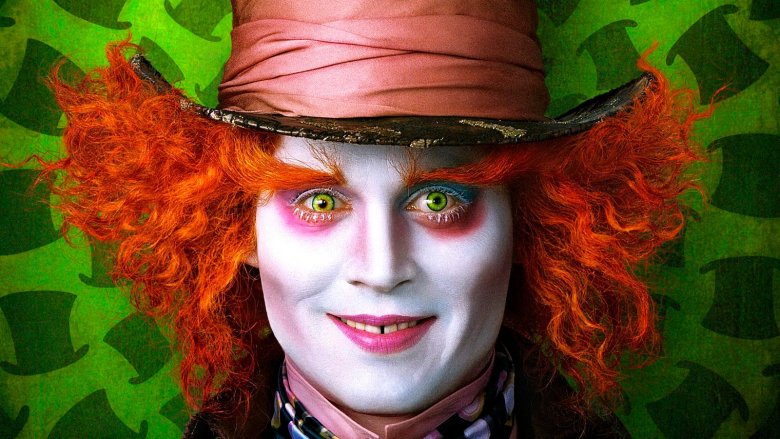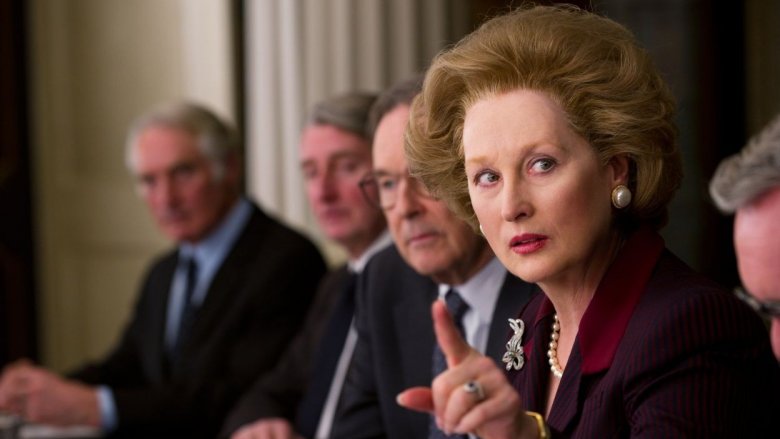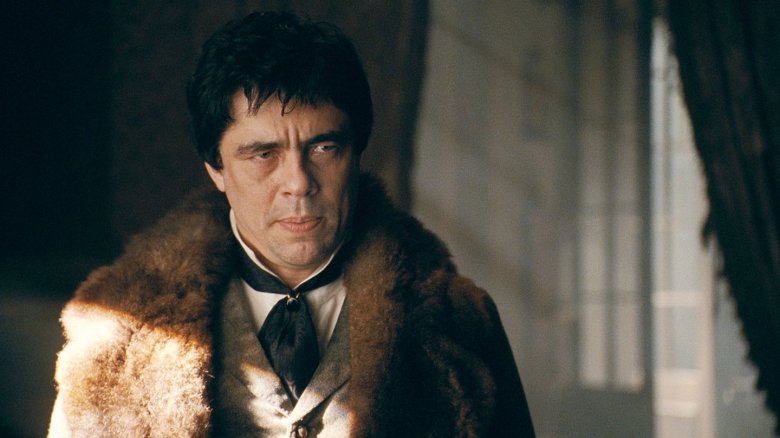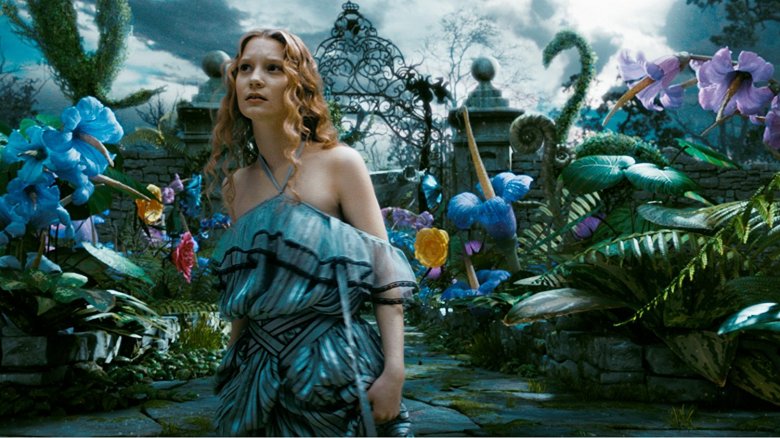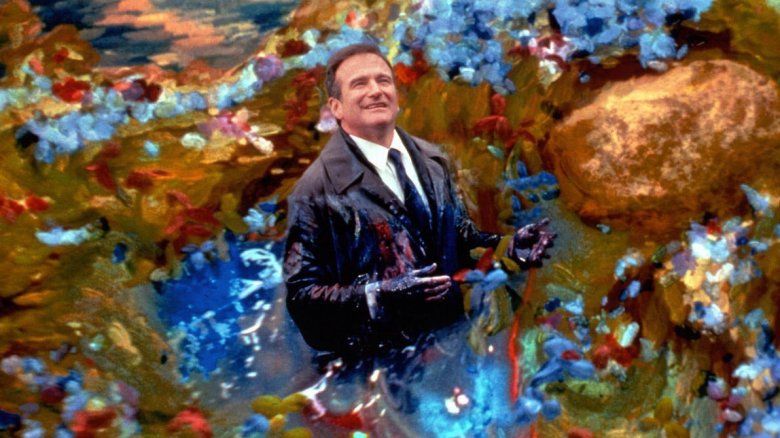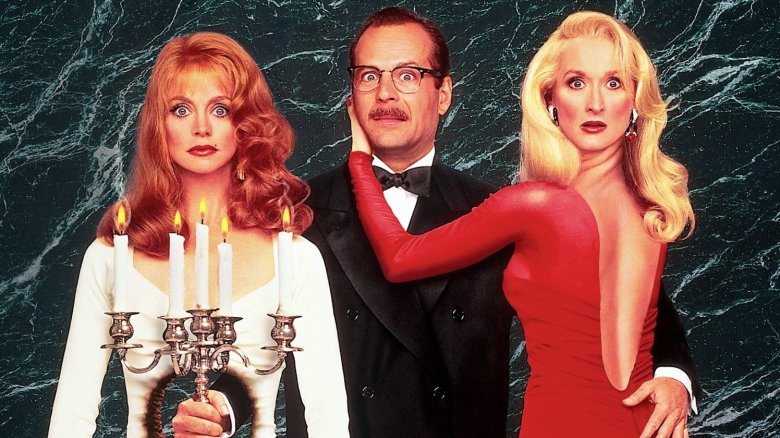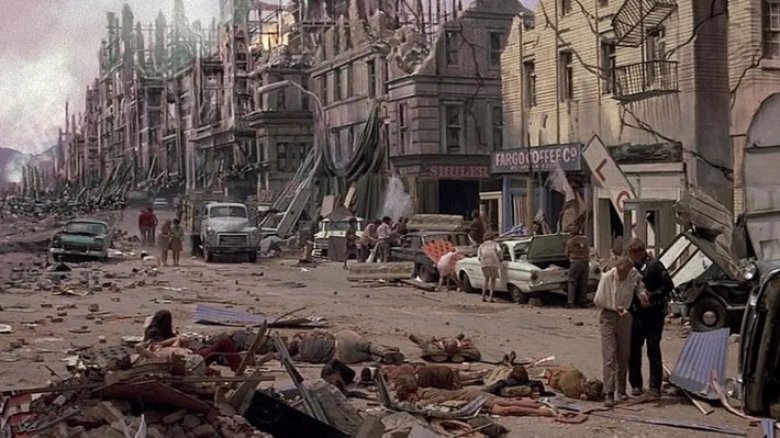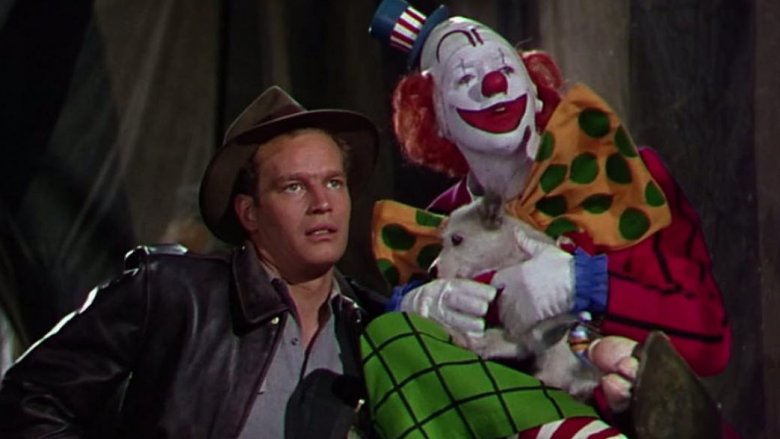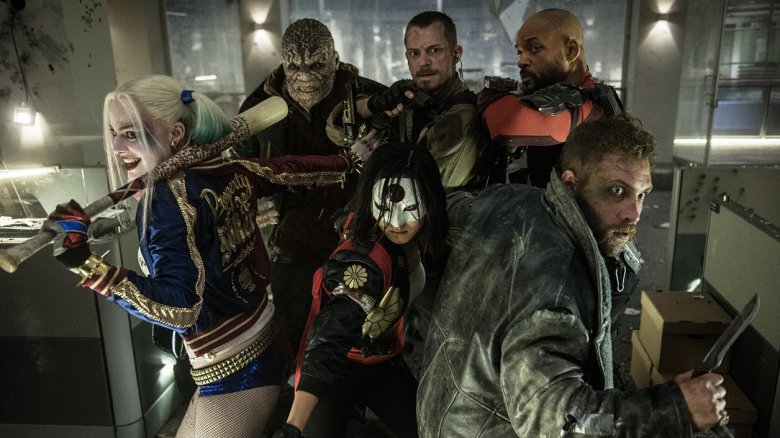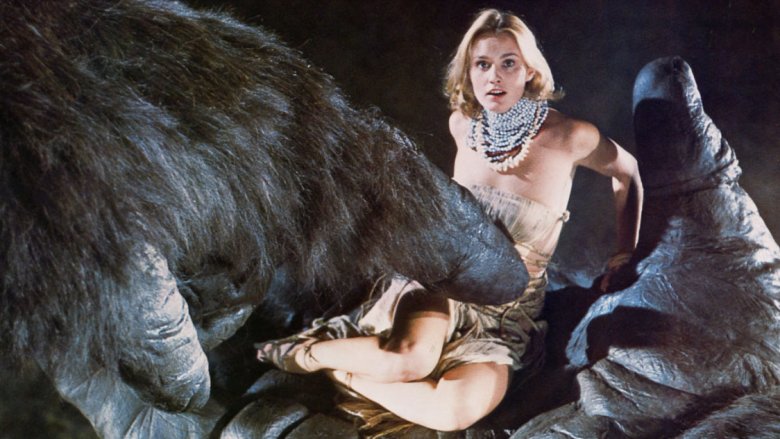Critically Hated Movies That Actually Won Oscars
There really isn't any objective way to determine a movie's worth — or any art, for that matter — but the Academy Awards come close. The ceremony is a great way to showcase some of the very best in cinematic excellence over the past year, showcasing acclaimed hits as well as some of the less mainstream movies that audiences may not have had the opportunity to see.
Even the Oscars make mistakes sometimes, however — and over the years, more than a few critically eviscerated movies have won Academy Awards. Here are some of our favorites.
The Iron Lady (2011)
Biopics invite some of the Academy's favorite qualities in a film: A bravura performance from a beloved actor turning to more serious fare, a true story full of juicy details and room for fictional deviations, and ideally a specific time period that lends itself to the juicy artistic flourishes that can accrue some technical awards. There's even a term for it: Oscar Bait. The Iron Lady, focusing on British Prime Minister Margaret Thatcher, manages to pull a hat trick for all three while also completely whitewashing the actual legacy of the central figure.
Granted, it's not hard to see why the Academy was swayed. The Iron Lady stars Meryl Streep, inarguably one of the best living actors of at least three generations, and she predictably shines in the role. Unfortunately, that shining performance is just about the only thing worth watching — Thatcher is a famously controversial figure in British political history, and the film's vain attempt to flatten that into a movie that cheers on a female politician's rise to power is questionable at best and outright offensive at worst. Critics agreed, but the film still managed to snag awards for Best Actress and Best Makeup.
The Wolfman (2010)
Benicio del Toro is no stranger to playing weird, hairy hermits, but his starring turn in the 2010 remake of The Wolfman had some big shoes to fill considering the long shadow left by the original. Still, del Toro seemed like the absolute perfect vessel to channel the man-turned-monster.
Unfortunately, the film fell flat critically, as the languid pacing and light horror weren't enough to connect. The movie did have one very strong quality going for it, though: makeup and creature design by Rick Baker, who's probably your favorite makeup artist even if you didn't know you had one. The man's filmography is like a greatest hits of genre movies, including Hellboy, Men in Black, Videodrome, An American Werewolf in London, and even Star Wars. Considering Baker's pedigree, it's almost unsurprising that The Wolfman managed to score a (well-deserved) win at the Academy Awards for Best Makeup — it's just a shame his work wasn't seen by more people in a better film.
Alice in Wonderland (2010)
Tim Burton is one of the most stylistically recognizable directors working in Hollywood. His Edward-Gorey-Meets-Pop-Art style may not be for everyone, but you can recognize one of his films from a mile away. With that in mind, adapting Alice in Wonderland seemed like a perfect fit — the original story is weird, gothic, yet ultimately still kid-friendly, like some of Burton's best movies.
Unfortunately, while Burton's Alice in Wonderland was ridiculously successful at the box office, it was also heavily criticized for an overuse of CGI and performances that would have chewed the scenery if it wasn't so colorfully weightless. Still, the candy-colored setting and creature design was enough to nab Alice Academy Awards in both Best Art Direction and Best Costume Design. Plus, it gave us one of the best reasons for a PG rating: "for fantasy action/violence involving scary images and situations, and for a smoking caterpillar."
What Dreams May Come (1998)
There aren't many actors gifted enough to convey the deep sincerity and anxious energy of Robin Williams. Even in lesser movies, he shined with his mile-a-minute speech pattern and gentle sadness. Speaking of lesser movies, here's What Dreams May Come — yet while critics were mixed on the overall quality of the movie, nearly everyone was in agreement that the movie looked fantastic.
They're not wrong, either. The afterlife shown in the movie is almost garish in its Amazon forest excess, blues and purples flashing by like a proto-Avatar. In stark contrast to the muddy setting on Earth, what comes next genuinely looks otherworldly. By the time the movie's setting switches to Hell, the color is drained out of the film to spectacular effect, all of which was enough to clinch What Dreams May Come an Academy Award for Best Visual Effects. That honor may have been the most lasting impact left by this otherwise largely forgotten film.
Death Becomes Her (1992)
Meryl Streep and Goldie Hawn traded barbs in Death Becomes Her, a crowd-pleasing black comedy about two Hollywood rivals who discover that not even death can quell their hatred for one another. Directed by Robert Zemeckis (probably best known for Back to the Future) and starring Bruce Willis as the plastic surgeon caught in the middle, the movie has become something of a '90s a cult classic. Still, while audiences may have enjoyed it well enough, it got mixed reviews from critics.
The poor reviews weren't enough to put the nail in the coffin for Death Becomes Her's Oscar chances, however, as it walked away with an Academy Award for Best Visual Effects. It's a well-deserved nod, too, considering that the film was a pioneer of synthesizing CGI and practical effects, and its visuals hold up fairly well today. There's definitely some well-deserved irony in the fact that a film about vapid, soulless Hollywood celebrities obsessed with looking good regardless of their inner beauty received an Academy Award for the same.
Flashdance (1983)
Flashdance isn't the best movie with "Flash" in the title (that would be Flash Gordon) or the best movie with "Dance" in the title (that would be Dirty Dancing), but you could generously call it the best movie with "Flashdance" in the title. The story follows a steel mill worker (Jennifer Beals) who moonlights as an exotic dancer with dreams of becoming a ballerina. Flashdance was a massive hit at the box office and on the pop charts, but earned absolutely vicious reviews that complained of the poor storytelling, bizarre character beats, and overall waste of Beals' acting talent.
Despite the poor critical reception, Flashdance picked up no fewer than four Oscar nominations, two of them on the strength of the film's bestselling soundtrack. The title track, "Flashdance ... What a Feeling," ended up winning Best Original Song — continuing singer Irene Cara's streak of being associated with Oscar-winning movies that benefited from hit singles and cool choreography.
Earthquake (1974)
The tragedy of Earthquake's journey from seemingly surefire blockbuster to box office trash fire could likely fill a book, but we'll be brief: The original script was penned by the writer behind The Godfather, the movie starred Charlton Heston, and it even had a score by the inimitable John Williams. Unfortunately, the result was about as earth-shatteringly terrible as the actual San Fernando earthquake that served as the movie's plot.
Critics agreed, and Earthquake has been largely forgotten since. We wouldn't even be talking about this film at all if it weren't for its one excellent attribute: a new style of sound design called Sensurround that was meant to closely simulate the feeling of an actual earthquake. The faux earthquake audio was a success, drawing in huge audiences and shaking up the Oscars to get an Academy Award for Best Sound and another special achievement honor for visual effects.
The Greatest Show on Earth (1952)
It's extremely rare to find a Best Picture winner that was critically reviled. Even movies that are retroactively considered to be terrible, like Crash, still manage to eke out a respectable "Fresh" rating on Rotten Tomatoes. The Greatest Show on Earth is a rare exception — a Best Picture winner so critically disdained that it's hard to understand how the Academy went so wrong.
Directed by Cecil DeMille, who you might recall as the genius filmmaker behind Cleopatra and The Ten Commandments, the movie indulged his epic tendencies in the worst ways, succumbing to sweeping melodrama and narrative bloat without ever coming close to living up to its title. That didn't stop The Greatest Show on Earth from sauntering off with Academy Awards for both Best Picture and Best Writing, but as the critical consensus makes clear, this is one picture that may have coasted on its director's larger-than-life reputation.
Suicide Squad (2017)
The DC Extended Universe and the Marvel Cinematic Universe both have their fans, but there's no arguing that as far as the critics are concerned, the MCU beats the DCEU hands down — and 2017's Suicide Squad is just one disappointing example of the way a DC-derived project started out with the best of intentions, only to be savaged by the pundits.
Reportedly hamstrung by studio interference so heavy-handed that a film trailer company received final edit privileges on the film, director David Ayer may have never had a chance. Add in the bonkers behind-the-scenes method acting horror stories of star Jared Leto, the rushed script, and a climax straight out of every blockbuster from the last decade, and you've got a real (albeit real profitable) debacle. Still, while the film's narrative may have been a muddy mess, at least the actors looked good — and Suicide Squad was rewarded for those efforts, earning an Academy Award for Best Makeup. Better than nothing, right?
King Kong (1976)
All things considered, King Kong's had a pretty good run of it at the box office. The 1933 original is a cornerstone classic of modern cinema, Peter Jackson's 2005 remake did well with critics while making a mint, and 2017's Kong: Skull Island brought the big guy into Legendary's Monsterverse in blockbuster style. But we tend to forget the Dino de Laurentiis-produced 1976 Kong remake, and for good reason: Starring Jessica Lange and a young Jeff Bridges, the film tried to reinvent the story for a new generation, but only succeeded at making audiences miss the original.
Critics found it tiresome, but the titular giant monkey managed to grab another kind of blonde beauty in the form of an Academy Award for Best Visual Effects. Perhaps emboldened by their success, Laurentiis' production company enlisted '76 Kong director John Guillermin for a sequel, King Kong Lives, ten years later. Oscar voters (and audiences) weren't nearly as impressed.
